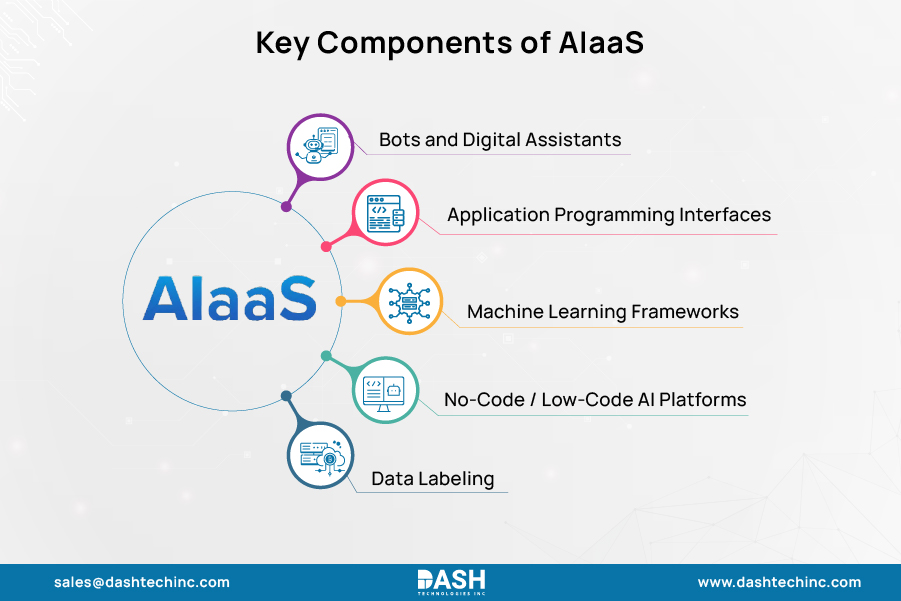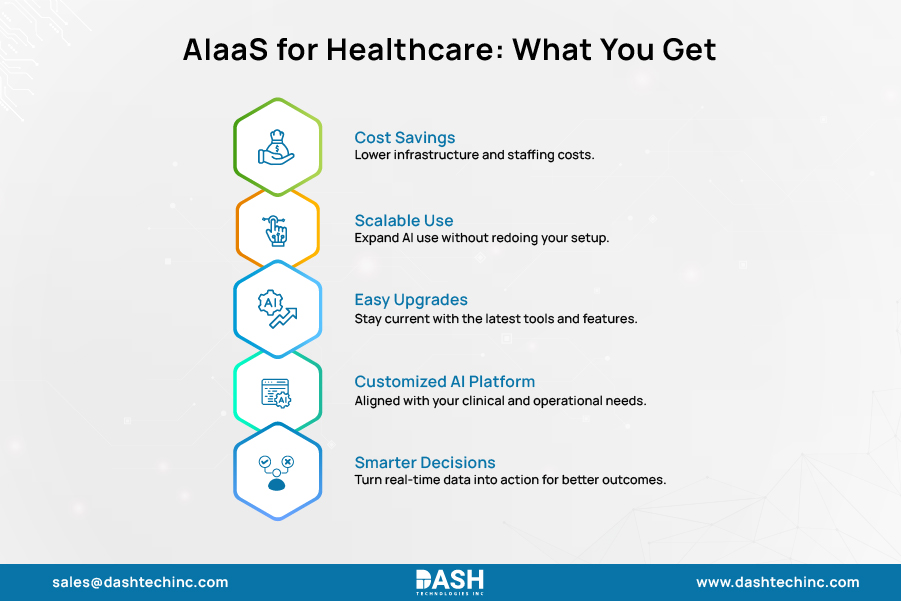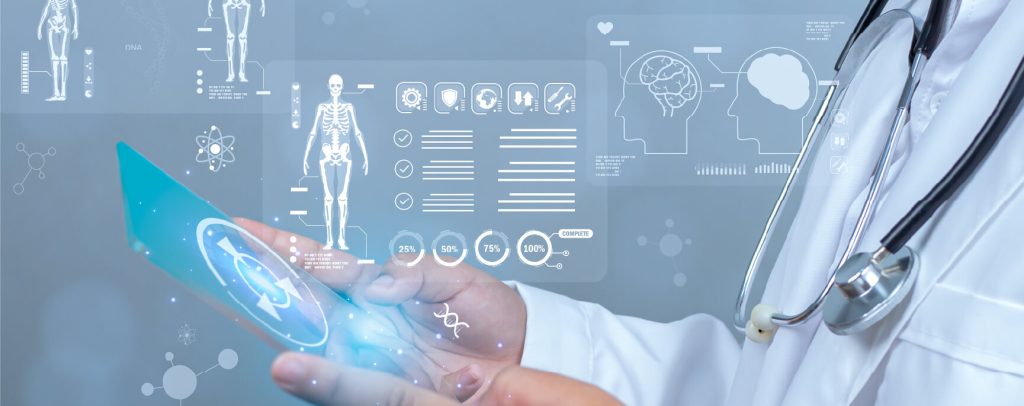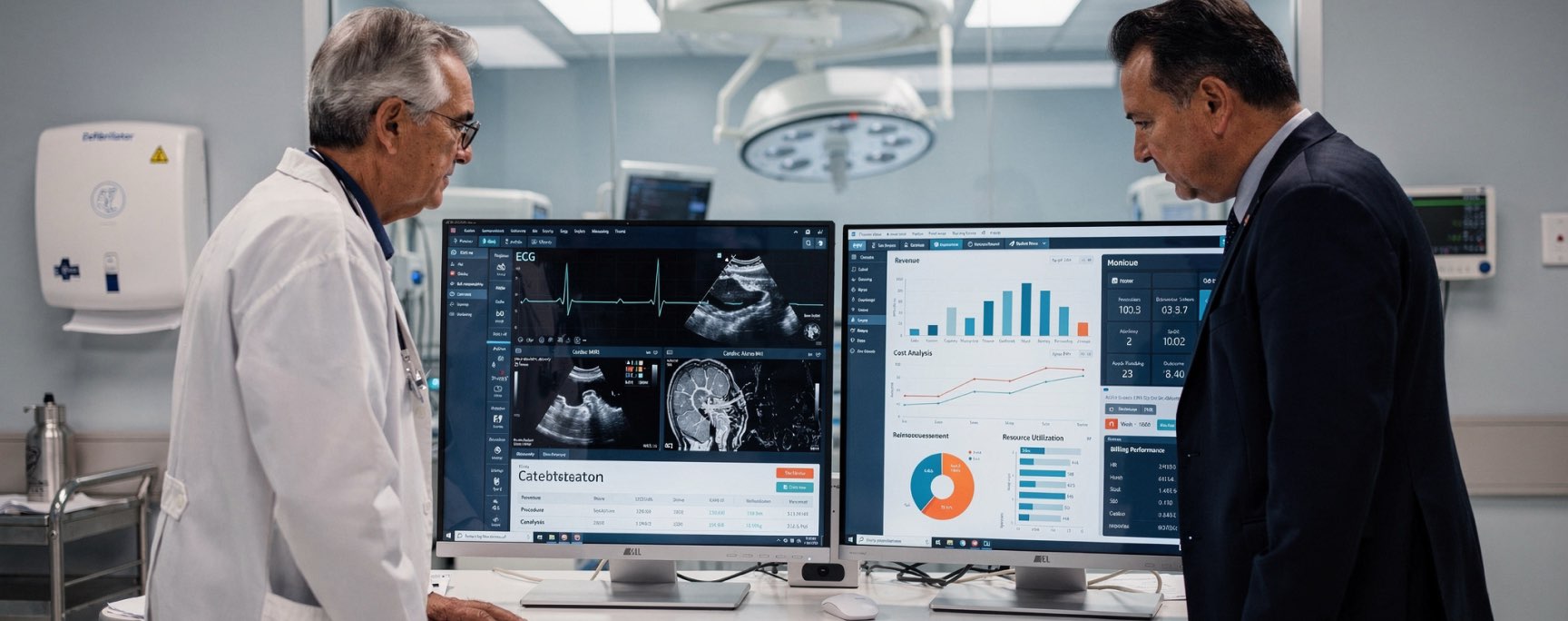Artificial Intelligence as a Service in Healthcare: Smarter Care with Less Complexity
Artificial Intelligence as a Service (AIaaS) is emerging along with other models of cloud computing such as SaaS, PaaS, IaaS, and FaaS. AIaaS helps healthcare providers and startups access AI tools. They can do this without spending money on expensive infrastructure. AIaaS is an emerging but important service model in healthcare, enabling advanced diagnostics, process automation, and improved patient care.
In this blog, we’ll discuss what AIaaS means for healthcare, its types, and benefits. Moreover, how do Epic and Cerner leverage the use cases of AIaaS.
What is AIaaS?
Artificial Intelligence as a Service provides cloud access to AI solutions. These include predictive modeling, language processing, and image recognition. Healthcare organizations can use these solutions to spot patient risks. They help gain insights from clinical data and improve diagnostic accuracy.
AIaaS also enhances operational efficiency, supports real-time decisions, and data management. AIaaS replaces internal infrastructure requirements. This lets healthcare providers focus on giving timely and personalized care.
According to the Grand View Research, the global AIaaS market will reach USD 16.08 billion in 2024. They expect it to grow at a CAGR of 36.1% from 2025 to 2030. This growth stems from a higher demand for automation, data analysis, and cloud computing in healthcare and other industries.
Artificial Intelligence as a Service: Core Components

AI as a service allows health systems to use advanced features without building them. Services support important healthcare workflows, like clinical support and patient engagement. Below are the key types of AIaaS commonly applied in healthcare settings.
-
Bots and Digital Assistants
Healthcare workers use AI chatbots and virtual assistants to automate patient interactions. These tools manage routine tasks such as scheduling appointments and refilling prescriptions. They assist patients when linked to EHR portals and health apps, without reaching out to clinical staff for patients’ information. Natural Language Processing (NLP) helps these AI bots and digital assistants understand patients’ queries and concerns and provide relevant answers.
-
Application Programming Interfaces (APIs)
AIaaS APIs offer modular AI functions like medical text analysis and image classification. They support critical workflows, such as automating clinical documentation and improving image interpretation. Health IT developers can use these APIs to speed up feature development without building models from scratch.
-
Machine Learning Frameworks
Cloud-based ML platforms supply the core resources and toolsets needed to efficiently create, train, and launch models. Frameworks like TensorFlow and PyTorch support managed AI services, enabling healthcare data scientists to develop clinical decision-support tools.
The platforms handle tasks such as computing resources, version control, and scalability, allowing teams to focus on model development rather than infrastructure management. -
No-Code / Low-Code AI Platforms
Low-code and no-code AI systems in healthcare speed up model development. They need less complex programming, but users still need technical skills. Users must understand clinical data and follow healthcare workflows. They must install AI models with precision. These systems suit healthcare staff with data or analytical skills.
-
Data Labeling
Data labeling in healthcare involves marking clinical data. This includes medical images, lab results, and patient histories. This process readies the data for AI systems. It keeps the data organized, accurate, and helpful. This is important for diagnosis, treatment planning, and predictive analytics.
Usually, this process mixes human experts with machine learning systems. Experts review and confirm the data, and AI models learn from it. This approach enhances the reliability of AI systems in real healthcare settings.
Build Smarter Healthcare Workflows with AI
We’ll support you with integration, compliance, and custom AI solutions—without the complexity.
Get in TouchHow AIaaS Supports Healthcare Systems

-
Cost-Efficiency and Recourse-Light
AIaaS removes upfront costs such as infrastructure, software licenses, and specialized staff. Organizations can use AI at a low cost with a pay-as-you-go model. This approach helps optimize computing resources and reduces overhead from traditional deployment methods.
-
Scalable Across Clinical Environments
Organizations can use AIaaS platforms in many clinical settings. These settings include outpatient clinics, hospitals, diagnostic labs, and telemedicine. They use containerized or cloud-native architectures for easy scaling. This method lets them adapt to changing workloads, user volumes, and clinical processes. They can do this without redesigning the system.
-
Seamless Integration and Updates
AIaaS solutions typically employ HL7/FHIR standards in combination with RESTful APIs. This arrangement provides rapid integration with EHRs, LIS, RIS, and other health IT systems. Ongoing deployment of pipelines and automatic versioning assist with constant updates. These updates have minimal impact on clinical operations.
-
Customizable AI Platform
AIaaS offers modular AI features that can fit specific needs. Radiologists can use it in image processing. It also helps improve clinical documentation and predict patient risk. Role-based access, customizable models, and workflow integration ensure accuracy and compliance.
-
Data-Driven Decision Support
AIaaS offers real-time analytics and predictive insights via structured and unstructured health information. These technologies help spot issues in patient vitals and predict readmission risk. This allows for better decision-making during care and in business processes.
-
No Internal AI Team Required
Healthcare providers can use enterprise-class AI. They can hand over model building, training, and maintenance to AIaaS vendors. This means they don’t have to hire data scientists or ML engineers. Vendors handle compliance, performance tuning, and security patches. This eases the technical and regulatory burden on internal teams.
AIaaS: Shaping Tomorrow’s Healthcare
The future of Artificial Intelligence as a Service in healthcare centers on federated learning and edge AI. These technologies keep data safe within healthcare networks. They let AI models train across various networks without revealing sensitive information. This approach boosts privacy and improves the use of distributed data.
Meanwhile, digital twins and synthetic data are becoming increasingly common. They use real patient information while keeping health data private. This supports testing, simulation, and training. Regulatory bodies like the FDA are updating AI guidelines. They focus on transparency, explainability, and risk assessment.
Healthcare organizations embrace tailored AI platforms. These platforms address their clinical and operational needs. They also create custom models and connect with EHR systems, diagnostic tools, and monitoring devices.
Customized AI solutions, such as symptom checkers and virtual nursing assistance, underscore AI’s utility in patient care. Services must be scalable, secure, and compliant.
Dash Technologies: Your Partner in Healthcare AI
At Dash Technologies, we offer tailored AI solutions. These solutions transform healthcare delivery and operations. We assist providers, payers, and MedTech innovators in utilizing data insights without risk. Our expertise in healthcare IT and AI makes this possible.
We specialize in:
- Easy integration with EHR systems like Epic and Cerner for smooth workflows.
- Scalable, secure AI services that enhance diagnostic accuracy, patient engagement, and operational efficiency.
- Custom AI development meets specific healthcare needs. This includes predictive analytics, automated documentation, and real-time clinical decision support.
- Compliance and privacy are key. We follow HIPAA, GDPR, and industry standards to protect your data.
Ready to advance your healthcare AI initiatives? Contact us to learn how we can support your journey with tailored expertise and agile solutions.
About Dash

Dash Technologies Inc.
We’re technology experts with a passion for bringing concepts to life. By leveraging a unique, consultative process and an agile development approach, we translate business challenges into technology solutions Get in touch.







